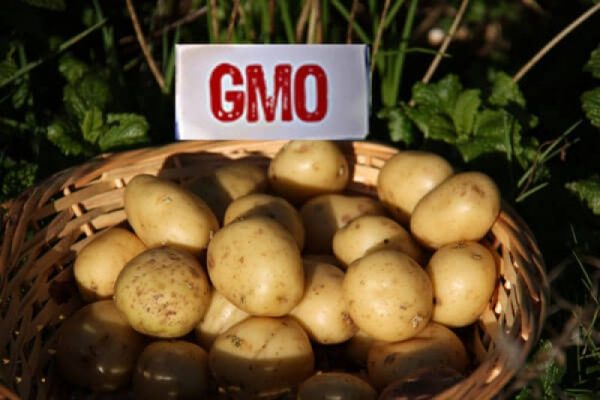By Tina Amanda
A coalition of over 100 civil society groups, farmers, scientists, legal professionals, and academics representing 100 million Nigerian consumers has called on the Nigerian government to abandon plans to introduce genetically modified (GM) potatoes and implement a total ban on genetically modified organisms (GMOs) in the country.
The coalition argues that GMOs violate fundamental human rights and pose significant risks to Nigeria’s food security.
The demand was issued in a press statement on Thursday, September 19, 2024, following the government’s announcement of an upcoming report on clinical trials for GM potatoes, with plans for commercial release in 2025. Critics argue that GM potatoes and other GM crops jeopardize public health and threaten the environment.
Nnimmo Bassey, Executive Director of Health of Mother Earth Foundation (HOMEF), criticized the National Biosafety Management Agency (NBMA) for advancing GM potatoes despite an unresolved investigation by the House of Representatives into the approval process for GMOs.
“The House of Representatives in May 2024 announced a halt on introducing new GMOs and mandated an investigation on GMOs and the approval processes. To date, 4 months later, there is no information on the findings or results of this investigation, yet the National Biosafety Management Agency (NBMA) is warming up to release new GM potatoes.
“The release of GMOs is a deliberate attempt to destroy Nigeria’s food system, GM potatoes could irreversibly contaminate indigenous potato varieties”, Bassey said.
Dr. Ifeanyi Casmir, a Molecular Biologist, warned that GM potatoes, like other GM crops introduced in Nigeria, could lead to the erosion of the country’s original crop germplasm. He called on the government to focus on addressing insecurity in key agricultural regions, such as Plateau State, rather than pushing for GMOs.
Environmental Rights Action’s Deputy Director, Mariann Bassey-Orovwuje, also raised concerns about regulatory transparency, noting that information on GM potato field trials has not been made public. She questioned the push for GM potatoes in Nigeria, pointing out that they are banned in their native region of the Andes.
“These GM potatoes are banned at the potato center of origin in the
Andes, with indigenous farmers warning that GM potatoes are a terrible
idea. Additionally, Late blight is not a uniquely African problem; which
raises the question as to why it is being forced on Africa; on Nigeria, the simple answer is commercial interests”.
According to Joyce Brown, Public Health Scientist and Director of
Programs at HOMEF, said there is no information as to whether there have
been long-term feeding studies conducted on these GM potato varieties.
“Lovelyn Ejim, a farmer and founder of the Network of Women in Agriculture
noted that Nigeria does not need genetic modification to address the
late blight disease.
“the disease is not new and simple organic methods have over time proven to be effective including choosing naturally resistant varieties, crop rotation, mixed cropping, providing proper crop nutrition, crop spacing, quick removal of blighted plants, etc.
Nigerian farmers have not asked the government for GMOs”.
The coalition urged the government to halt all new GMO introductions, support sustainable farming practices, and invest in agroecology, which they believe will address Nigeria’s agricultural challenges without the risks posed by GMOs.
This demand reflects ongoing resistance to GMOs in Nigeria, with widespread public opposition to recent GM crop releases, such as TELA Maize.




